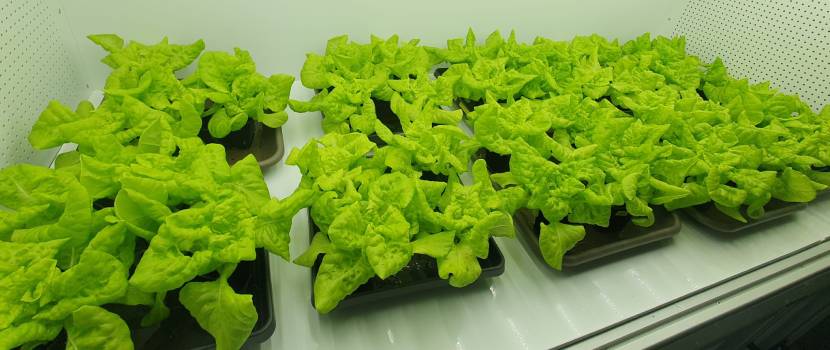
Can plasma change the future of agriculture?
With a growing population and increasing demands on food production, today’s agriculture is looking for innovative and sustainable approaches to crop production. One method that has attracted the attention of scientists around the world is plasma, a technology that uses the so-called ‘fourth state of matter’ – plasma. This method makes it possible to gently modify plant seeds and increase their resistance to stress without the use of chemicals.
At Jan Evangelista Purkyně University in Ústí nad Labem, a team of experts is working on research into plasma modification of plants. Under the leadership of Mgr. Hana Auer Malinska, Ph.D., from the Department of Biology, physicists and biologists are joining forces to investigate the effects of this modern technology on plants. “Our aim is not only to increase seed germination, but also to strengthen the resistance of plants to adverse conditions, which is essential for sustainable production,” explains the team leader, who specialises in plant physiology.
Members from the Department of Physics are in charge of the technical aspects of plasma treatment, while biologists monitor changes in plant physiology. The results of the research show that plasma treatments can bring significant benefits not only for farmers but also for the ecology, as it allows the production of more resistant plants in a gentle and natural way.
The research team at UJEP is unique in many respects. It combines biological and physical sciences to explore the possibilities of plasma technology in agriculture. Plasma technology can increase the germination of seeds and strengthen their resistance to abiotic stress, a key step towards more sustainable agricultural practices. “Plasma is an innovative technique that allows us to influence seed characteristics without chemicals and other environmental burdens. Our priority is to see how we can use cold plasma to improve plant quality and yield,” explains Dr Malinska.
In order to be at the cutting edge, research into plasma treatment of plants needs a strong technical background and expertise in plasma technology. This is exactly what the team of physicists led by Assoc. Ing. Together with colleagues and students, they create optimal conditions for seed plasma treatment, where precise instrument setup and experimental control play a crucial role.
“Working with the plasma reactor and being able to participate directly in the research of such an important technology is fascinating. Plasma offers endless possibilities not only for biology but also for other applications,” says Ing. Jakub Perner, a PhD student at the Department of Physics. His supervisor associated professor Kormunda adds: “We are convinced that plasma has the potential to become a key technology for the future of sustainable agriculture and environmental protection. Our work is still in the early stages, but the results are very encouraging.”
A prominent member of the team is Mgr. Kristýna Šedivá, a PhD student at the Faculty of Environment at UJEP, who is working on the project thanks to her own student grant. Her focus on the ecological aspects of plasma brings a new perspective to the research, as she is investigating how this technology affects plants not only from an agricultural point of view, but also with regard to environmental protection.
“My work allows me to combine ecology and biotechnology, which I find extremely interesting. Plasma plasma is not only a technology for farmers, but it can also be useful for ecologists working on soil conservation and landscape restoration,” says Mgr. Šedivá.
Scientific research on plant plasmas at the Faculty of Science of UJEP represents an innovative approach to solving some of the key challenges of contemporary agriculture and ecology. By combining knowledge from physics and biology, a team of experts has come up with a technology that can not only increase crop production but also help restore damaged ecosystems. It is the interdisciplinary collaboration between the Department of Physics and the Department of Biology that is the foundation of this success.